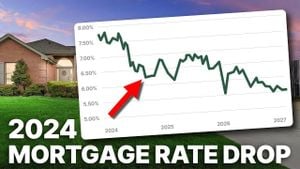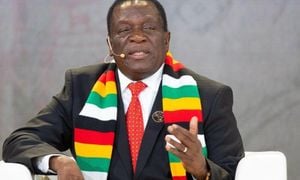French President Emmanuel Macron is poised to announce the appointment of a new Prime Minister as early as Thursday, after the recent political upheaval sparked by his former Prime Minister Michel Barnier’s ousting amid a no-confidence vote. The sudden shift has thrown Paris' political scene back to square one, raising hopes, fears, and much speculation about the direction the government will take under new leadership. This appointment follows several high-stakes discussions at the Élysée Palace aimed at drafting the next chapter of French governance, where the stakes are incredibly high.
After what has been described as two intense days of negotiations with party leaders, Macron finds himself at the center of the storm. Politicians from across the spectrum await the announcement of Barnier’s successor, hoping for someone who not only has the ability to build coalitions but also tackle pressing budget issues. It’s believed Macron is working to unite moderates from various parties to create a stable government coalition capable of passing the 2025 budget, which has become more than just pressing; it’s become urgent.
Macron’s challenges intensified following Barnier’s short administration, which lasted only three months. The government fell due to Barnier's controversial decision to push through major budget reforms without parliamentary consent, igniting outrage from both the far left and the National Rally party. This no-confidence vote marked the first time since 1962—over sixty years—that such a motion successfully ousted the prime minister, thrusting France back toward political instability.
While Macron seeks to appoint someone adept at bridging divides, the current political climate demands more than just experience; it requires tact. The National Assembly, where factions are increasingly polarized, presents Macron with unique challenges. The assembly is divided between passionate leftists and the far-right, creating hurdles for any candidate aiming to secure broad support. Macron himself has expressed the need for unity and compromise, emphasizing negotiations with the Socialists, Greens, and other centrist parties, all of whom have significant political stakes to protect.
Political leaders across France are under scrutiny as they assess Macron's next move. Reports indicate Macron is aiming for stability—he knows the economic stakes involved, especially with France's debt level climbing, currently at 6.1%, which exacerbates the urgent need for fiscal control and responsible governance.
The urgency is not lost on the French people or lawmakers. Macron stresses the necessity of assembling effective leadership to navigate through the budget slashing, social reforms, and debt management. Public opinion remains divided; the left accuses Macron of ignoring their needs, especially concerning Barnier's pension reforms which aimed at extending retirement age to 64—widely contested by left-wing factions.
A prime candidate being discussed is Emmanuel Macron's longtime ally François Bayrou, but his close ties to the president might provoke scepticism among those seeking substantive change. Bayrou’s past record, which saw him acquitted of embezzlement charges this year, provides him with some credibility yet may not be enough to rally support from skeptical party leaders on either side of the aisle. Others, like former interior minister Bernard Cazeneuve and current Defence Minister Sébastien Lecornu, have also emerged as possible picks, though the shadow of Barnier's recent failures looms large, forcing any new candidate to tread carefully.
Macron aims to define his political legacy through this upcoming decision. His new Prime Minister will be responsible for steering through not just the budget for 2025 but also restoring public confidence after the recent upheaval. The balance of power is fragile, with every vote counting. It raises the stakes even higher as any future elections loom on the horizon.
On the other front, Marine Le Pen, leader of the National Rally, seems comfortable with her party’s exclusion from the cabinet formation talks. Rather than feeling sidelined, she is positioning herself to capitalize on the growing public dissatisfaction with Macron's government, potentially using this scenario to advance her party’s chances come the next presidential election. Polling suggests healthy support for her party, leaving Macron with the uneasy reality of possibly fostering his political competitors by failing to stabilize his government.
The broader coalition of opposition parties has been vocal about prioritizing principles over party politics, urging Macron to appoint someone who can lead the nation with all citizens' voices considered. Upcoming debates will likely spotlight this challenge, assessing whether parties prioritize public service over political allegiance.
Meanwhile, Macron's strategic discussions at the Élysée emphasized producing effective governance beyond mere party lines. He has indicated the possibility of engaging directly with all parties willing to collaborate, pushing for unity instead of division.
This all leads to today, where the suspense continues to swell as the nation awaits news of who will lead France next. With challenging questions hanging over Macron’s head, the future remains uncertain. It’s pivotal to see whether the new Prime Minister can redefine not just the administration's approach to governance but also how French citizens view their democracy.
While speculation abounds, one thing is clear: Macron's leadership will be put to the test once more. The outcomes of these decisions could set the tone for his remaining time as president and the future of French politics as we know it. Today brings with it the promise of new beginnings—a time where rumors will give way to reality as France waits for its next Prime Minister to be unveiled.



